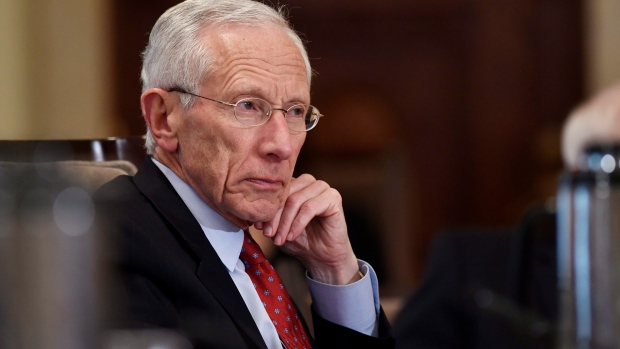Sep 6, 2017
Fed's Fischer announces resignation, to leave mid-October
, Reuters

WASHINGTON - U.S. Federal Reserve Vice Chair Stanley Fischer, a veteran central banker who helped set the course for modern monetary policy, said on Wednesday he will step down from his position in the middle of October.
In a letter to President Donald Trump, Fischer, 73, said he was resigning for personal reasons and that the effective date would be on or around Oct. 13.
"It's been a privilege to serve on the Federal Reserve board and most especially to work alongside Chair Yellen," Fischer said, citing the improvements in the economy and financial system in recent years.
Fischer's term as vice chair was set to expire next year but his early departure gives Trump an opportunity to further shape the central bank sooner than expected.
The Fed is supposed to operate with a seven-strong board, which will now be whittled down to three pending the confirmation of Trump's first Fed nominee, Randal Quarles.
The Fed's supervisory functions can be conducted with as few as two of the seven members, according to the board's rules. The Fed's rate-setting policy committee, which includes some of the regional reserve bank presidents, can also continue to meet.
Still, this would be the first time ever the Fed would function with so few policymakers. The Senate Banking Committee is scheduled to vote on Quarles' nomination on Thursday.
Fischer's decision to step down eight months before his vice chair term was set to expire comes at a critical time with Trump mulling whether to keep Chair Janet Yellen.
This means a sea change in the composition of the Fed, especially as itRs not clear if Fed Chair Yellen is going to get re-nominated. The composition of the Fed is going to look entirely different than it did just a couple of years ago," said Subadra Rajappa, head of U.S. rates strategy at Societe Generale in New York.
The U.S. dollar fell against a basket of currencies after Fischer's announcement.
Fischer, the former head of the Bank of Israel, spent his career in academia and policy work, as well as three years as an executive at Citigroup.
Previously, he had served as a top official at the International Monetary Fund during the Asia crisis of the 1990s.